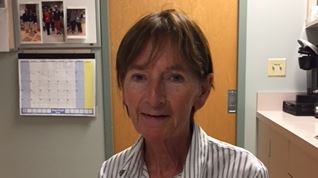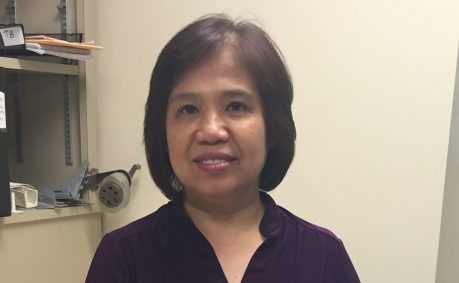Rowing in the right direction!
Infection Prevention & Control (IPAC) is a priority at VCH and thankfully, we have a dedicated team working to prevent infections for patients, staff, visitors and families in the most efficient cost-effective way possible. Achieving these goals is the driving force behind every recommendation and action from the VCH IPAC Program.
“Our job is to prevent, reduce and manage hospital-acquired infections (HAIs),” explains Patricia Bleackley, the regional manager for Infection Prevention and Control (IPAC). “Our vision statement is ‘Infection-free health care.’ It’s a lofty goal, but that’s what we strive for.”
- Jennifer Irwin ICP
- Eithne Connolly Senior ICP
- Rosma Facundo ICP
- Rita Dekleer ICP
- The Infection Control Team. Front row: Lisa Harris , Craig Pienkowski, Allyson Hankins and Lauren Kim. Second row: Anne She, Carolyn Goss, May Tang, Sandie Gabriel and Gail Busto. Back row: Pat Bleackley, Mary Cameron-Lane and Munira Murji.
A team effort
With a group of 18 infection control practitioners, the IPAC team spends many hours a week, managing critical data and information; including HAI surveillance; intervening directly to interrupt infectious disease transmission by being present and alert to what is happening throughout facilities, investigating and managing infectious clusters to prevent outbreaks; managing outbreaks to quickly bring them under control; providing training and education. ICPs provide expert IPAC knowledge, resources, and consultation. ICPs look at everything possible that can be done to prevent and/or manage infections throughout VCH facilities.
“Our primary work is with acute and residential care, however; we recently lent support to home and community healthcare to prepare for our recent accreditation survey which added to our responsibilities.” Patricia says.
A big job
“It’s a big job and it keeps us very busy. The IPAC team is currently in the process of developing a new policy & procedure, user friendly website for infection prevention & control that’s expected to be completed by 2017. This webpage will be available on the internet and intranet which will allow for management of infection prevention and control across the organization and as well, for our external stakeholder and partners. Providing current IPAC information to our external partners is important to help them prevent infections which in turn helps keep people from needing hospital admissions.
“The IPAC webpage will provide a standardized platform across VCH,” she says. “One team, one message, one vision. Having the same IPAC messaging across VCH, helps all of our staff provide consistent IPAC care and management. IPAC standardization also makes it easier for casual staff who work at a variety of locations within our health authority.”
“ICPs do excellent work,” she says. “While not many people, ICPs do an amazing job, preventing, managing and reducing infections. ICPs work together as seamlessly as possible, rowing the boat in the same direction.”
Passion and pride
Pat is obviously passionate about her work and very proud of the IPAC Team.
“I’m so amazed with what VCH ICPs accomplish every day,” she tells me. “While we don’t have a lot of IPAC human resources, ICPs do great work preventing, managing, and controlling infections.” We are also grateful for the support our Medical Microbiologists/Pathologists, Infection and Medical Health Officers partners who provide support, insight, guidance, expertise and lab diagnostics.
National Infection Control Week
National Infection Control Week takes place from October 17 to 21.






